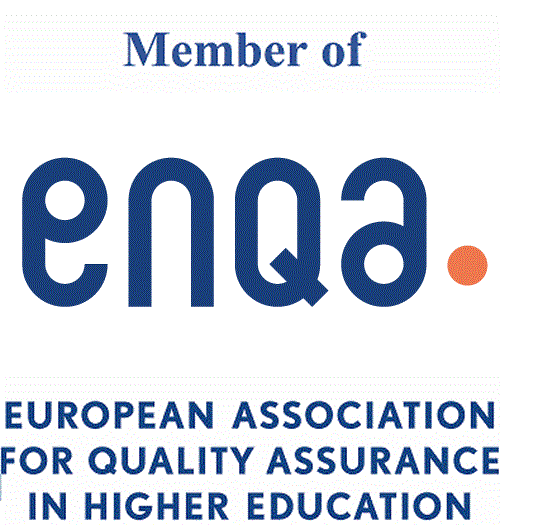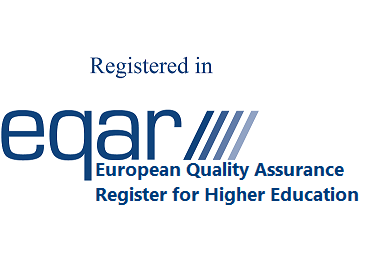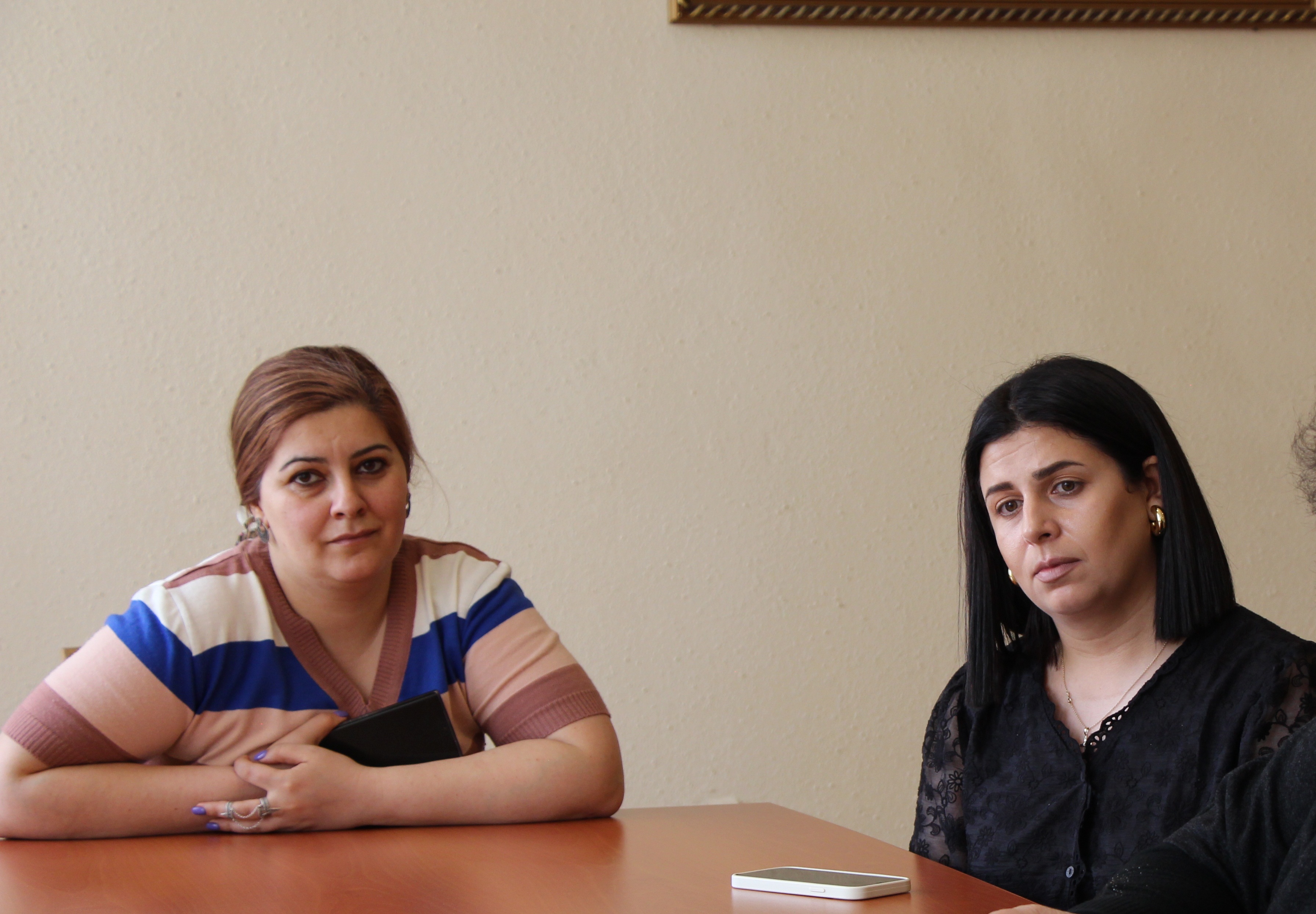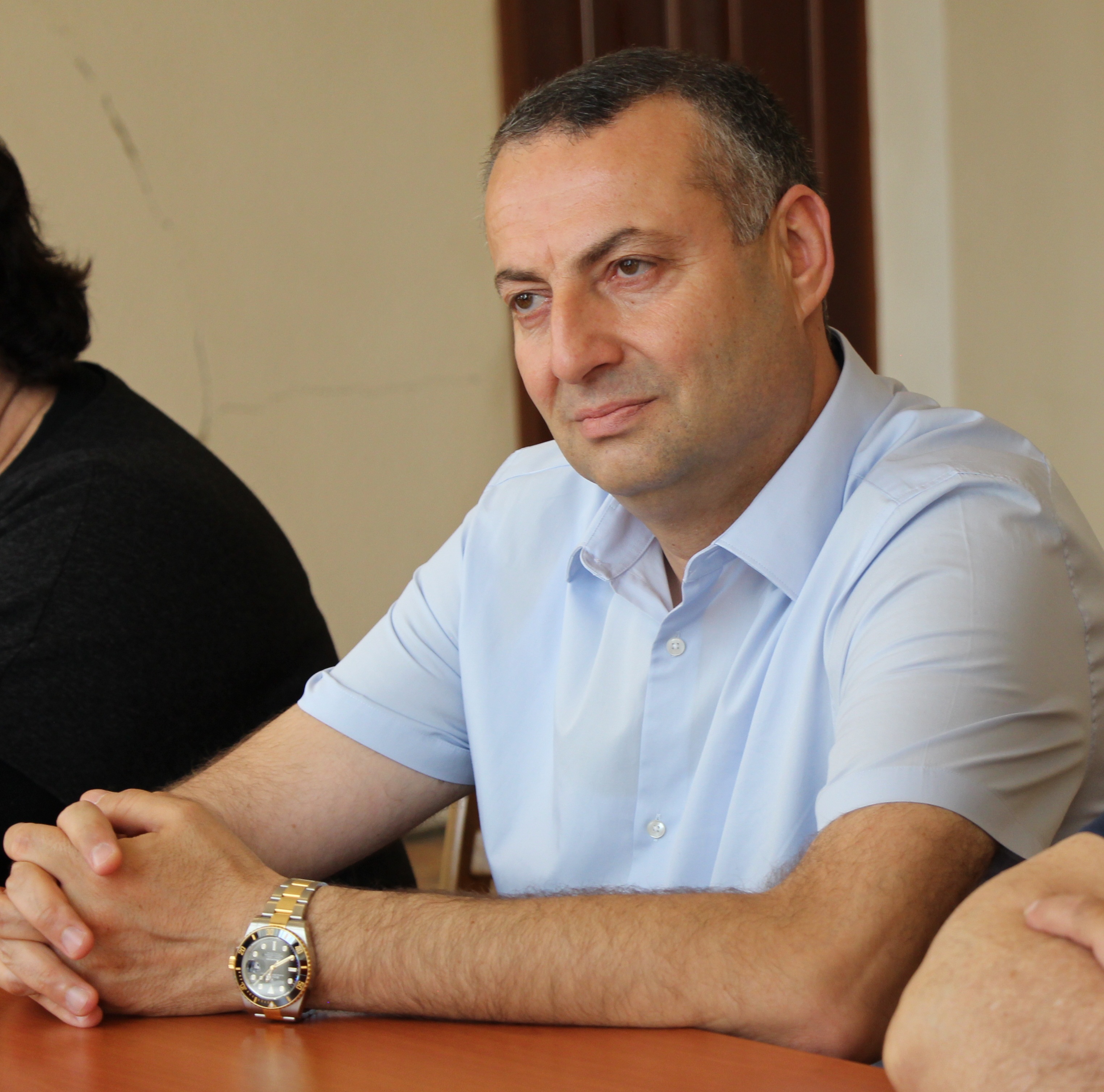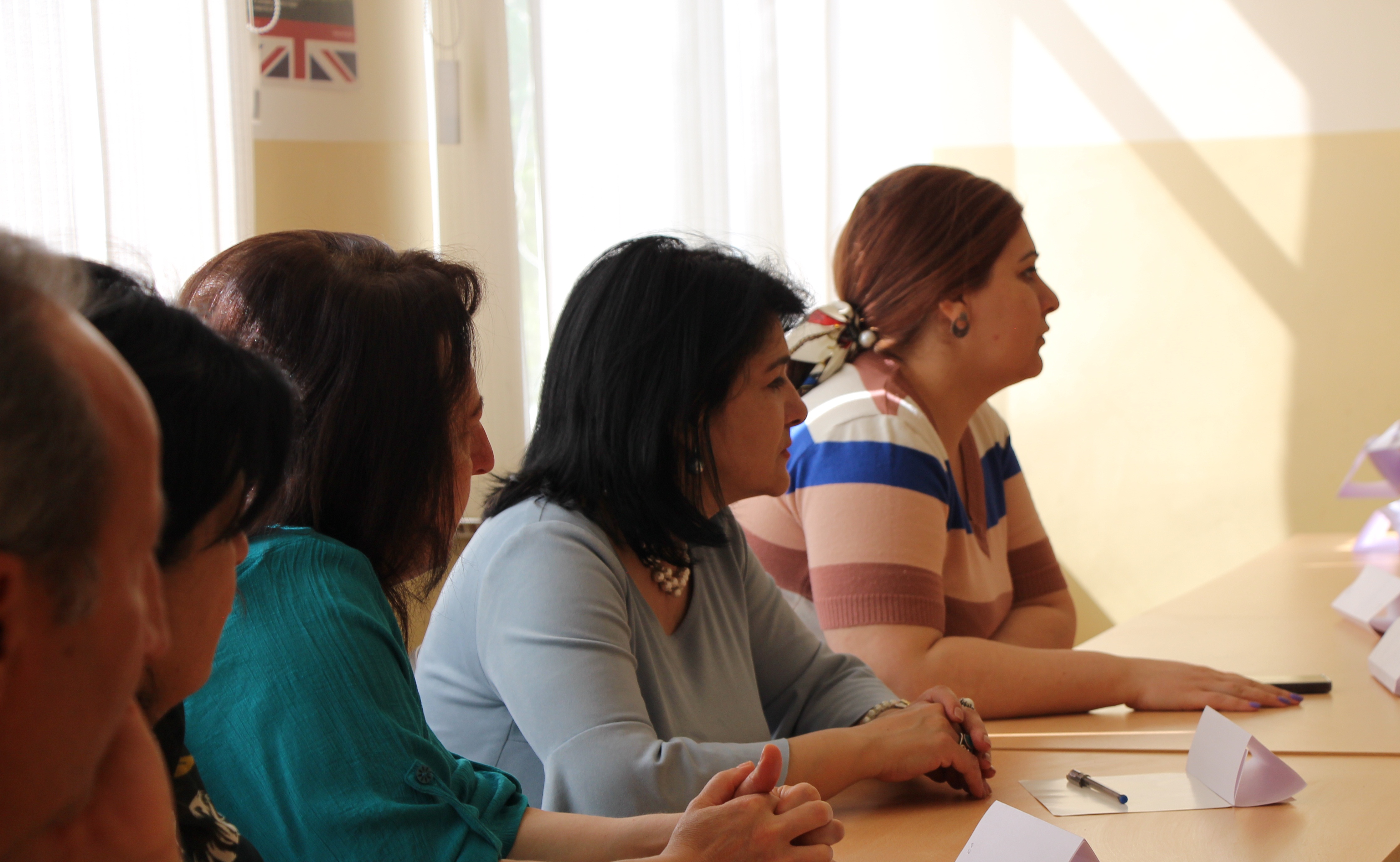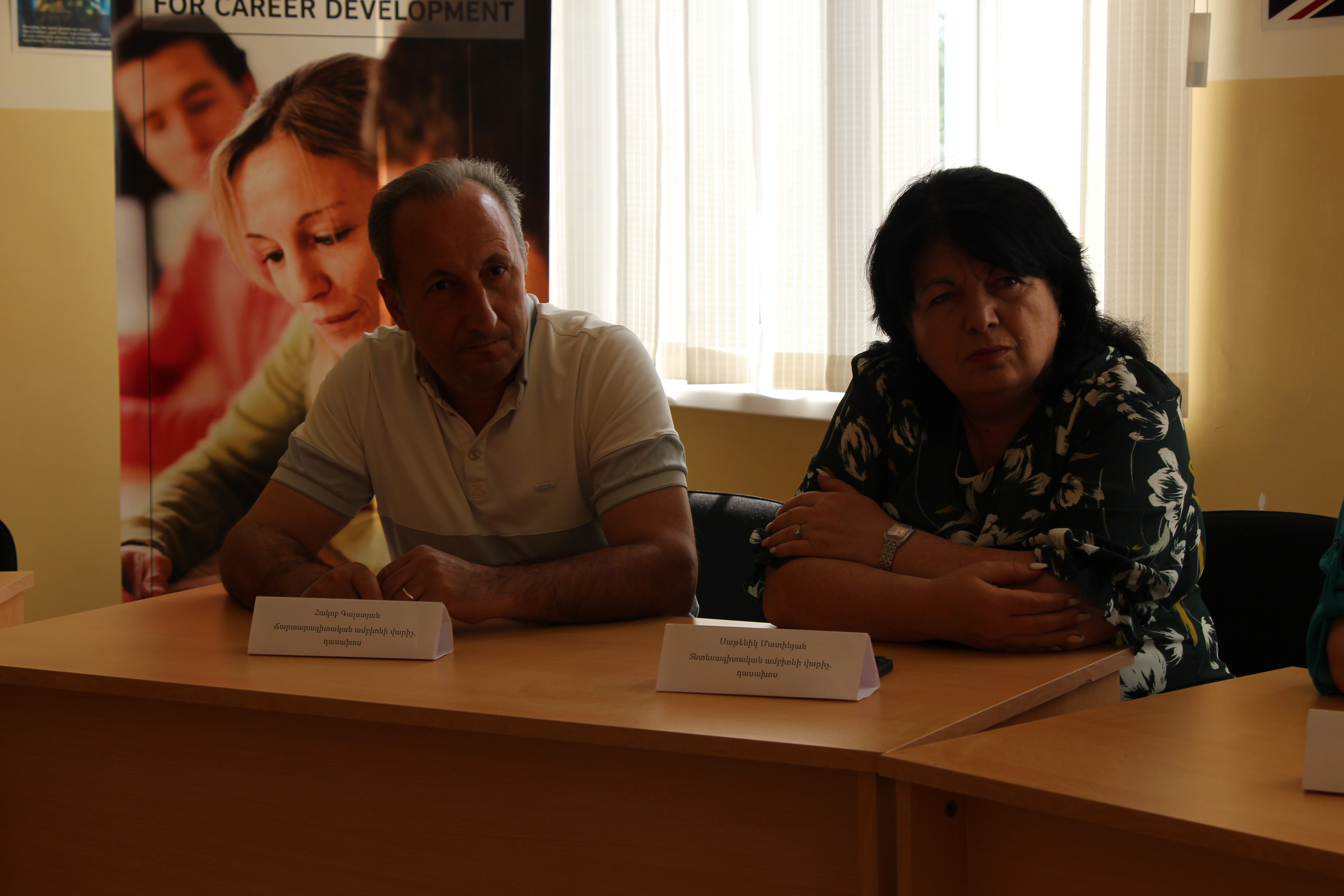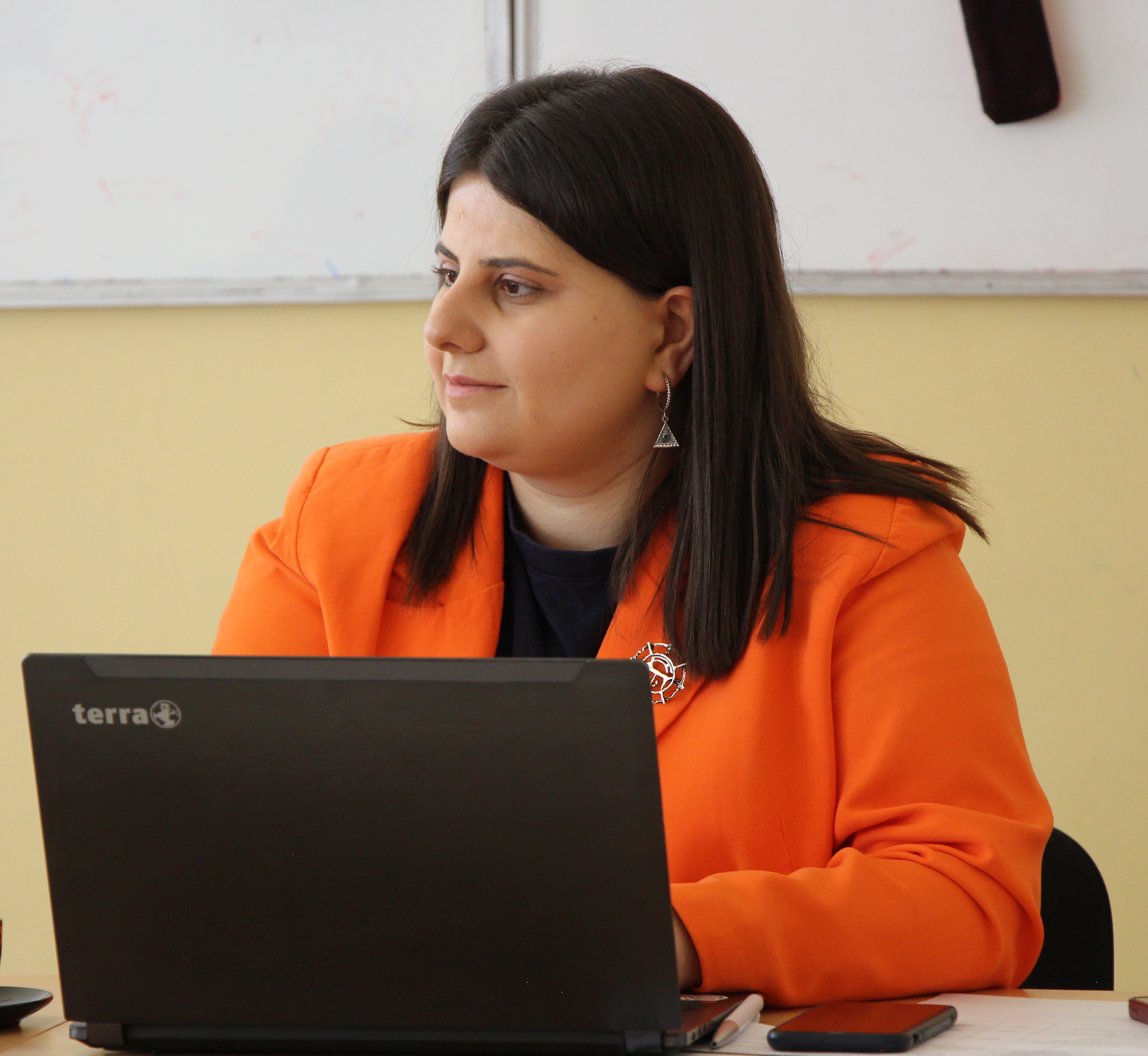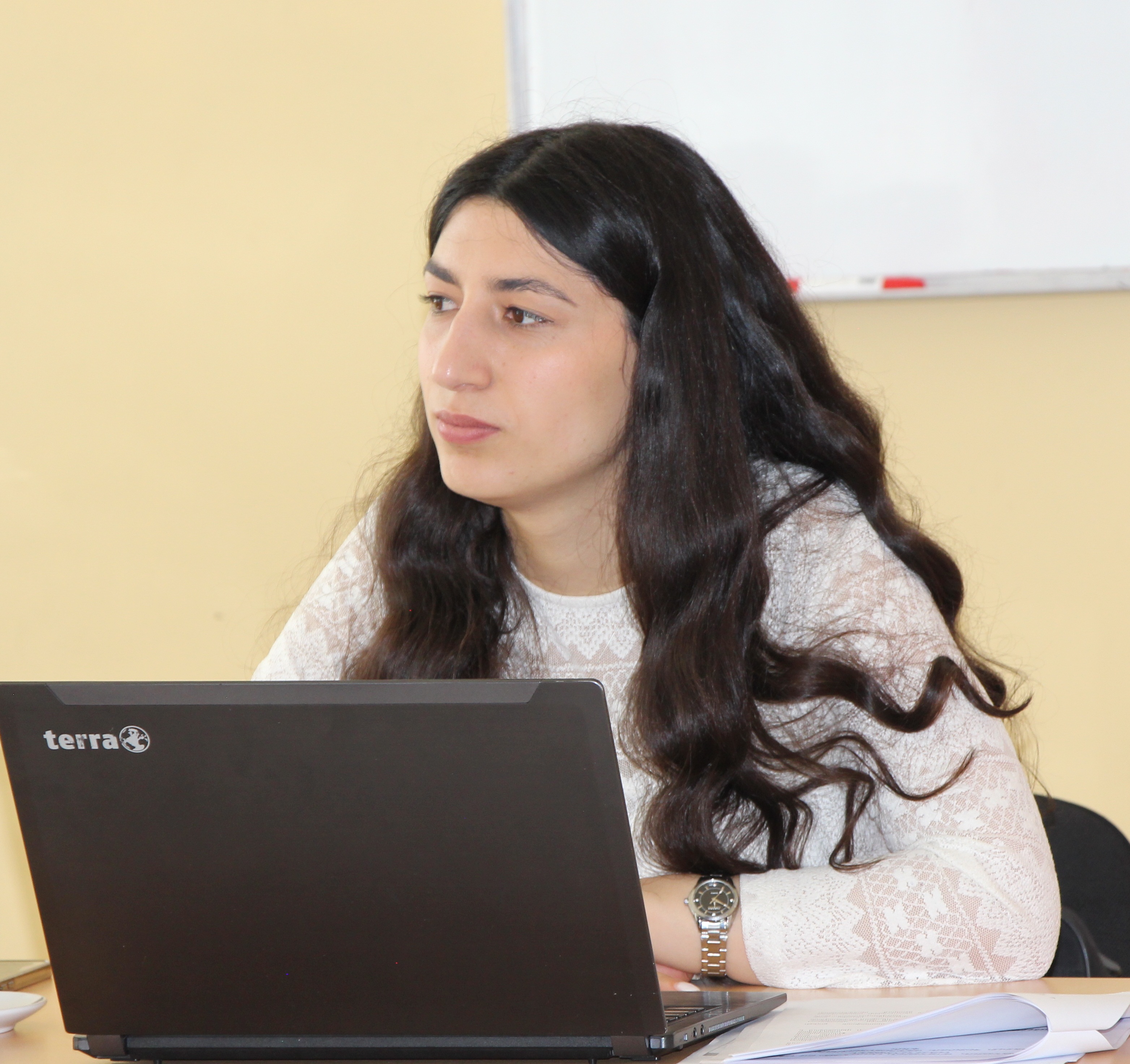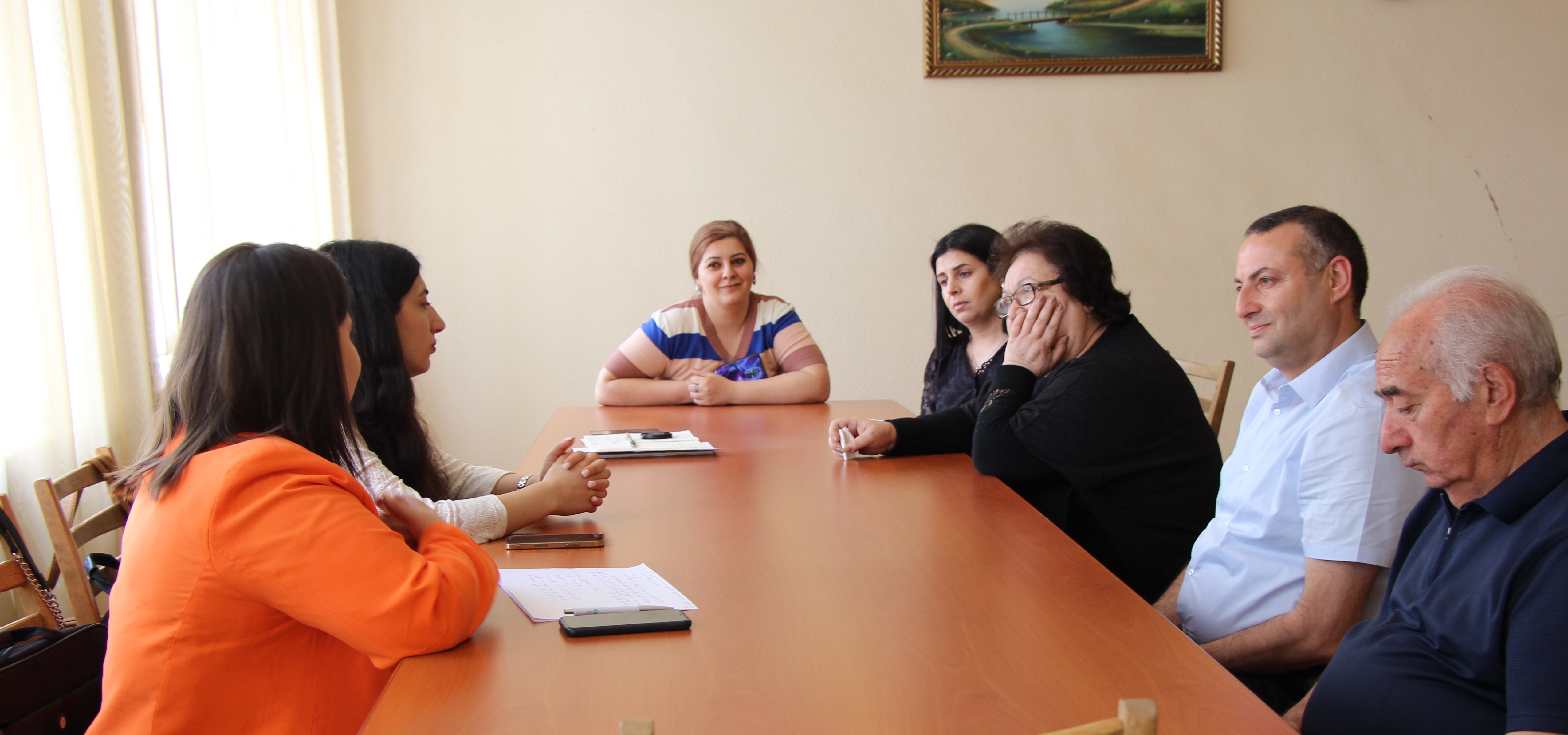On April 30, ANQA’s specialists carried out monitoring of the internal quality assurance system at the Masis State Agricultural College. The aim was to pinpoint the institution’s strengths, promote the dissemination of best practices and identify areas subject to enhancement, providing relevant recommendations. The monitoring focused on the following:
- activities in the direction of the embedment and implementation of the quality assurance system within the institution;
- data-based strategic management;
- processes implemented to enhance the academic programmes and assessment system;
- cooperation with employers.
Meri Barseghyan, specialist at ANQA’s Policy Development and Implementation Division, and Anahit Terteryan, specialist at ANQA’s Institutional and Programme Accreditation Division, held meeting discussions with the institution’s director and vice directors, heads of chairs and teachers, students and quality assurance managers.
The following issues were under discussion:
- problems faced by the QA system and their KPIs;
- planning of the QA activities, the implementation practice of the PDCA cycle in educational processes;
- practice and outcomes of interdisciplinary cooperation;
- assignments shaping professional thinking;
- evaluation and integration of employer feedback into the educational process;
- the proportion of theoretical and practical classes, the need to broaden the internship opportunities;
- cooperation with employers and opportunities for the implementation of dual education;
- cooperation with other agricultural VET institutions;
- methodology for achieving the required outcomes and ensuring the credible award of qualifications;
- mechanisms for raising and responding to student needs;
- proficiency level of foreign languages and the need to expand the professional vocabulary.
The institution’s representatives noted the lack of public awareness of the vocational education sector poses a challenge, leading to difficulties in attracting students and employers. The problem of insufficient resources and building conditions was also pointed out. At the end of the monitoring, ANQA’s specialists positively evaluated the institution’s practice of regularly conducting SWOT analysis, also attaching importance to the following:
- the institution’s management staff setting challenges for the QA system and using the acquired data in the decision-making process;
- coordinated activities aimed at ensuring the implementation of the PDCA cycle;
- steps to foster the proficiency in a professional foreign language and integrate foreign language assignments into professional modules;
- piloting alternative ways to address the resource gap in the educational process.

